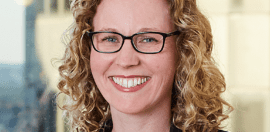Championing regional communities

24 March 2020 at 7:59 am
In the final article of our NFP leadership series, Map consulting group’s Lea Corbett and Amanda Cornwall interview Gerard Jose, CEO of Bendigo Community Health Services, about the experiences and challenges of leading a NFP.
Gerard Jose has been a CEO in regional Victoria and New South Wales for around 12 years now – at the Mildura Rural City Council and Greater Taree City Council, before joining Bendigo Community Health Services approximately 12 months ago. He possesses a strong regional perspective and passion for working with regional communities.

As a leader, you don’t always get to choose what you have to respond to. A few years ago, Jose, the organisation he led, and the wider community were all rocked to the core when one of his staff was murdered by her partner.
“Dealing with that as a CEO is one of the hardest things I’ve ever done. I had to make sure staff teams were supported – we brought in counsellors and set up systems to ensure staff had support. I sent messages to staff and did a lot of walking around to check in on people, just to ask if they were taking care of themselves,” Jose says.
“I had to respect Karen’s family, who asked me not to talk about her to the media without asking them. Karen was very well known and, as the CEO of the local council, I also had to think about how I could support the wider community.
“I also learned that I needed to be careful about how it affected me, taking time to care for myself. I get emotional even now just talking about it.”
Bendigo Community Health Services – Vitals
Sector: Public health
Purpose: Working hand in hand with our community to achieve healthier lives
Annual budget: $22 million
Staff: 222 staff and 87 volunteers across five sites
It’s hard to imagine how anyone can deal with such close up acts of terror, yet we all know the statistics. The Australian Institute of Criminology (2017) reports that on average, one woman a week in Australia is murdered by her current or former partner – so this is a crime affecting many individuals, families and communities throughout Australia.
Afterwards, Jose says he and many of his staff redoubled their efforts to raise awareness of and talk about the impacts of family violence with others in their community.
We asked Jose if he found it lonely at the top.
“I don’t view it as truly lonely. You’re lonely within the organisation, but not alone,” he responds.
“As CEO you lack peers in the workspace who you can be yourself with, and who won’t intensely scrutinise you – what you say, what you wear, and how you are behaving. You are not able to reveal yourself when being full of uncertainty, or frustration, or lacking in confidence at times.”
Jose says he has been privileged in his career as a senior executive because he has had good mentors all along the way.
“Having a mentor helped me to develop and know myself as a CEO. I think it’s key for anybody wanting to be a CEO to have a mentor,” he says.
“In the last 12 months at Mildura City Council I engaged an executive coach to talk to about what was going on for me.”
The other lonely aspects of being a CEO, according to Jose, relate to the sheer breadth of the role.
“Struggling with having a lens on the future whilst putting out spot fires and dealing with minutiae; operating across all the intersecting roles and relationships: the board, governments, sector-wide issues, stakeholders, operational management and compliance, community engagement and the consumer voice. No one else really has such a big picture, but it comes with responsibilities,” he says.
What sorts of pressures and challenges come with his new role at Bendigo Community Health Services?
In an unusual twist on the perennial funding scarcity issue faced by NFPs, Jose says their budget has grown, but their capacity to make a difference has shrunk.
“I strive to find the resources to deliver services that will make a lasting impact. With the move to individual funding arrangements, instead of block funding, we no longer have the resources for group services such as a soup kitchen,” he explains.
“We now rely on donations of goods, time and goodwill of others to operate. To meet the ongoing need is a challenge.”
Insecure funding = insecure employment
Another challenge is ensuring staff have certainty of employment in the midst of short-term contracts and funding agreements.
“A lot of our funding agreements are short term – 12 months or so. Growing the service’s capacity with a motivated, ongoing workforce is very hard in that context,” he argues.
When he started as CEO, Jose noticed that the organisation had a lot of staff who were on short-term contracts, a large proportion of them women.
This reduced their capacity for financial growth, credit rating, loans, etc. He initiated a review of these arrangements and moved most of the contract roles to ongoing positions.
According to Jose it’s better for staff and for the organisation because it’s improved the confidence and motivation of the staff.
“But it’s a challenge for me to maintain ongoing employment with so many short-term funding contracts,” he says.
The trust deficit
Jose also worries about the diminishing level of trust the community has in institutions like governments, the media and some not for profits.
“I’ve followed the Edelman trust barometer for about 19 years. It shows the community has diminishing trust in a range of vital institutions. People don’t believe those organisations are working in their best interests,” he says.
“I think people want CEOs to be candid and transparent. They want executives and boards to reflect the values of the organisation and to listen to what people are saying. Any CEO should be thinking about whether they are trusted by their community.”
Building trust among your community and other stakeholders and finding an “executive level” mentor that you trust are two bits of good advice from Jose to anyone aspiring to be a CEO of a not for profit. He stresses that a mentor will help you if you are willing to ask questions, to be deeply questioned in return, and find out if you are willing to be stretched as a leader.
What other advice would he give to people thinking about becoming a CEO?
“The role is not for everyone – I think you really need to question whether you want to move from something that you love doing to a role that can be more distant,” Jose says.
“I have seen many times the longest-serving practitioner being promoted to leadership positions and being unhappy because they do not want those changed roles and responsibilities.
“I would also say build a group of colleagues who you can share with and get support from in challenging times. People you can collaborate with to achieve common goals or just have a laugh with.”
Having a laugh and sharing success is something else that Jose encourages.
“I strongly believe in celebrating as you go rather than waiting for an end of year event or awards. Bendigo Community Health Services has multiple sites and 100-plus activities, so I want a culture of celebration built into the DNA of teams,” he says.
Share the success around
He has learnt that sometimes staff want the CEO to be part of the success and attend external facing events and activities.
“For example, our Headspace team recently won a GLOBE community award, which celebrates achievement in Victoria’s LGBTIQA+ communities. I went with the team to the awards dinner in Melbourne and celebrated with them,” he says.
“Sometimes it’s more important that others go instead, so that staff are recognised for the level of energy that they have invested in the project or leadership environment. It is important to me to share such opportunities.”
Jose also encourages his team to share feedback on successes through storytelling, social media, intranet, site meetings, the CEO blog as well as the more formal feedback in end-of-year reports and all-staff gatherings.
Finally, we ask all the CEOs in this leadership series to look through an even broader lens and tell us what they would do if they were premier of Victoria for a year – specifically what they would stop, start and keep.
Jose’s answers reflect his role as a strong regional champion.
“I would start involving communities more in decisions on long-term priorities and associated budgets,” he says.
“The Victorian public health and wellbeing plan 2019-2023 doesn’t reflect all the regional priorities and the needs identified by the 79 local councils in their Community Health and Wellbeing Plans. I would use local and regional plans to inform and build the statewide plan.
“I would stop the political spin and constant jousting between political parties. It’s turning people off politics and contributing to the decline in trust in political and government institutions. I would particularly stop funding allocation decisions based on popularity rather than merit and need.
“I would keep investing in regional cities, organisations and networks – like the Primary Care Partnerships which were due to finish but have now been given an extension while they are reviewed. They are vital to bringing all health care providers together to deliver a healthy approach.”
This article is the last in a six-part NFP Leadership series.
Map consulting group initiated this series of interviews with not for profit CEOs to share their insights about the role and support the success of leaders in the sector, current and emerging.
See also:
Leading a small organisation with a big mission
If this article raised any personal issues, please call 1800 RESPECT on 1800 737 732 or Lifeline on 13 11 14.








